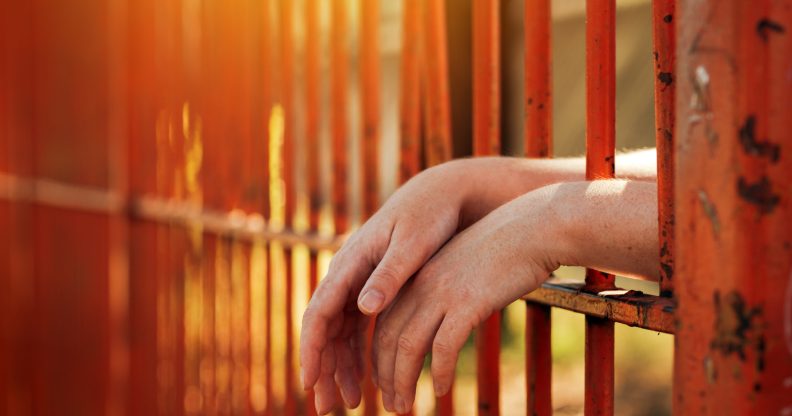Trans woman locked in solitary confinement for 15 months and denied healthcare over an expired visa

Pato is sharing her ordeal in immigration detention to try to improve things for other trans women. (Envato)
A trans woman who was kept in solitary confinement at an immigration detention centre in Japan for 15 months is speaking out about her “traumatising” ordeal.
Pato, who was kept alone in her cell for 22 hours a day, was also denied healthcare – meaning after seven years of HRT, she suddenly came off her hormone treatment.
“Right now, I am still a bit traumatised,” Pato, who is now staying with family after being released on October 7, told The Japan Times. “I can’t think of good things, my thoughts are negative and I’m afraid of going for walks and doing things outside my home. (The experience) affected my physical and mental health.”
She was also subjected to transphobic abuse from guards and other women in the detention centre, eventually becoming depressed and attempting suicide.
A gay politician who worked behind the scenes after learning of her ordeal managed to secure her a low dose of estrogen as well as antidepressants, and says the experience opened his eyes to how badly trans women are treated by officials and inflexible bureaucracy. In Japan, physical violence towards the trans community is reportedly less prevalent than in other countries, but trans people must be sterilised before they can have their gender legally recognised.
Pato, whose last name is withheld for her protection, arrived in Japan in 2015 to visit her father, who had cancer, on a tourist via from the Philippines. She was found to have overstayed her welcome in July 2019 and taken into immigration detention in the Tokyo Regional Immigration Services Bureau in the Konan area of Minato Ward.
But because Japan does not have specific guidelines for trans people in immigration detention, the guards kept her in solitary confinement, away from the other women. When she requested being moved to a men’s immigration detention centre, so that she was not trapped in her cell for 22 hours a day, this request was refused.
“I didn’t know why they wouldn’t let me stay with the women or the men,” said Pato, adding that she overstayed her visa but “didn’t have any big charges against me”.
“I thought that keeping me in a small room for 22 hours a day was against my human rights,” she added.
“Of course, it affected me psychologically. I’m human.”
Taiga Ishikawa, a member of the House of Councillors who was one of Japan’s first openly gay politicians, helped Pato get access to medication while she was in immigration detention.
“I’ve learned that there are many trans women who have a difficult time in immigration detention,” Ishikawa said. “I’ve always thought that Japan wasn’t a very good place for LGBTQ people. But in other places, trans people, especially trans women, face a lot of violence. Compared to those situations, Japan is actually quite good.
“However, many people who flee their home countries because of discrimination and violence end up in Japan. That means Japan and its institutions — especially immigration — need to understand the situations trans people face, and treat them correctly if they’re in detention.”
Aliza Krobara of Justice for Pato-chan, an activist group that advocated for Pato through letter-writing campaigns, visiting her and holding demonstrations, said that she “is now out of detention, but she’s far from being free”.
Krobara added: “Her financial situation is precarious, so we plan to continue to fight for her and are supporting her efforts to obtain a visa.”

